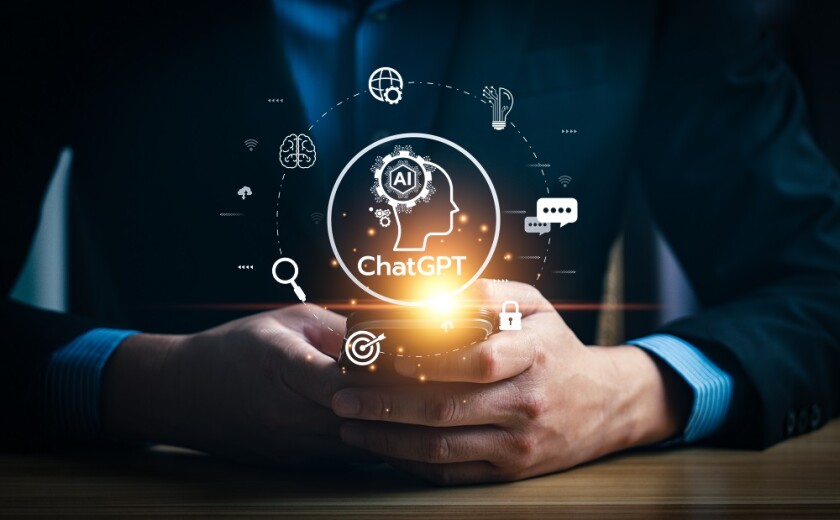The messaging market has been looking to add functionality to become richer and more targeted without adding costs. Automation and the application of artificial intelligence provide a means to achieve this, but acceptance of the technology will take time.
“AI could drive engagement between a brand and consumer over all messaging channels, but as yet messaging remains virtually one-way – application-to-peer – across all messaging channels,” says Nick Lane, the chief insight analyst and founder of business messaging market intelligence firm Mobilesquared. “Customer care is an obvious use case for brands over messaging, which is how WhatsApp Business launched its application programme interface for medium and large enterprises, which is mirrored by Apple’s Messages for Businesses service. Even then, most brands fear that human intervention via an agent will be required because the issues covered will be too complex for a bot, including ChatGPT, to solve. Any role for ChatGPT will only work when relevant use cases have been identified and brands have confidence.”
Building that confidence will take time and enterprises will need to feel assured that ChatGPT adds value for their customers and to its services.
“ChatGPT provides an opportunity to make interactions with telecoms chatbots more human-like,” says Vova Gerneshii, Vova Gerneshii, product director for enterprise at GMS.
“We expect to see an emergence of chatbots that are also able to handle long-text requests. However, overall, it seems like the messaging market will not be significantly affected by ChatGPT in the next one to two years.”
The market is also conservative about ChatGPT’s potential to accelerate deployment of rich communication services (RCS).
“ChatGPT isn’t likely to have an immediate impact. It might expedite brands’ adoption of RCS, but only from the current sloth speed to tortoise speed,” says Lane. “It comes down to how brands will use RCS and their confidence in doing so and then overlaying that with ChatGPT. Rich business messaging, the commercial side of RCS, has been launched in a lot of markets for a good few years, but brands are still only using experimental budgets on the channel. RCS is where brands were with mobile in 2006, but they’ll understand it and they’ll eventually spend billions on it. ChatGPT will play a role in that, but it’ll be a slow process.”
Gerneshii says that enterprises need clear reasons to use ChatGPT: “Goal-oriented chatbots enhanced by ChatGPT will be integrated into RCS. I’m not sure if ChatGPT could help RCS scale faster, but chatbots interacting with users over RCS would provide a more natural conversational experience.”
But Gerneshii believes the benefits of using ChatGPT-style systems with messaging in general are more apparent. “There’ll be more bots that are able to combine goal-oriented actions with chit-chat, conversations with chatbots will become more human-like, and there is a potential synergy between advertising technologies and chatbots that should boost interaction conversions and hence, advertising revenues. Finally, the use of ChatGPT components could help developers simplify and accelerate text analysis tasks and chatbot development.”
The warmer, richer messaging experiences that will result from using AI chatbots are appealing to enterprises.
“ChatGPT is incredibly well-known for its language processing and conversational abilities,” says Kelvin Chaffer, the chief executive of Lifecycle Software. “By integrating these complex models into existing chatbots, telcos have the opportunity to drastically enhance their customer service experience. In addition to supplying customers with immediate, in-depth answers – and a uniquely conversational aspect – the bots can also use specific tones of voice, writing and messaging that can further foster brand identity.”
Alexander de Ruiter is the chief executive of OBI4wan, which is part of the Spotler Group, a marketing technology vendor that delivers more than 18 billion messages per year on behalf of clients. He sees the rapid development and improvement of AI solutions, such as ChatGPT will lead to an increased shift towards digital communication.
“In the short term, I expect an increased number of messages between consumers and organisations on channels such as WhatsApp, live chat, Facebook Messenger and other platforms with integrated AI and chatbots,” he says. “Providers of hybrid solutions – combining messaging software and chatbots – will benefit in particular from this trend, seeing an increase in volume and revenue. Providers who adopt AI and chatbots within their channels will continue to benefit financially from these new developments. Legislation may slow down the implementation of solutions like ChatGPT in business solutions, but AI in general will have an increasingly major impact on messaging communication.”
Ensuring compliance with regulations for specific industries, such as financial services, and with general legislation, such as data protection laws, is a challenge that adopters of ChatGPT will need to address. This is a complex and evolving area and one that demands accurate understanding of what ChatGPT can do.
“Many of the risks specific to chatbots like ChatGPT and [Google] Bard stem from users misunderstanding the capabilities, and limits, of that technology,” says Will Richmond-Coggan, a data and privacy disputes specialist at law firm Freeths LLP. “These tools represent a specific category of AI which is focused on producing natural sounding language. This can produce outputs which look authentic and credible, but the extent to which they can be relied on will depend entirely on the accuracy of the data on which the tool was trained, and how well it has understood what it has been exposed to.”
“Legislators and regulators are more concerned with the scope for serious interference at scale with the rights and freedoms of citizens as a result of the systematic automated processing of their information via AI,” he adds. “While the risks presented by chatbots can be managed by understanding their limitations, and using a degree of human oversight to check how the tools are trained or to review content before it is deployed, it is harder to guard against these more widespread, existential, harms. That is why the legislation is focused in that area, although it is proving to be extremely difficult to frame that legislation in a way which has a real prospect of legislating for, and therefore guarding against, those harms.”
Gerneshii agrees that adopting AI chatbot technology is still early and legal principles for it are yet to be set.
“The legal framework for personal data processing regarding ChatGPT has not been developed yet,” he confirms. “ChatGPT replies can be on the edge of the law, even though thousands of data mark-up engineers are involved. In a sad incident recently, a person committed suicide after having a conversation with ChatGPT about the meaning of life and man-computer symbiosis.”
For Chaffer, the sheer novelty of the technology is a basis for concern.
“As we continue to adopt this ground-breaking technology into our businesses, we need to keep in mind that we are entering new territory with a myriad of threats and risks associated with these new forms of tech,” he says. “First and foremost, especially when it comes to messaging, we need to consider its security weaknesses. These bots are highly skilled in imitating human conversations, which opens a variety of doors for hackers to utilise and repurpose the bots for customer impersonation, data theft, ransomware, and a host of other security concerns.”
Yet ChatGPT’s benefits have the potential to outweigh the risks.
“ChatGPT potentially reduces the need to invest in a chatbot, so it could be seen as a key component in driving adoption of AI among enterprises, which will feed into the use of messaging,” says Lane. “I think it could play a supplementary role for any existing AI used by a brand within their rich messaging platform. If the existing AI cannot help a customer based on its constraints from programming and machine learning, ChatGPT could potentially step into a pseudo-AI managerial role based on a more maverick model not constrained like that AI. The concern for a brand is how susceptible ChatGPT is to external forces. Can ChatGPT’s machine learning be manipulated like early chatbots were based on comedic questions? At least when a brand invests in a chatbot they have control. ChatGPT could become the wild west of AI.”
In that wild west, messaging could be the beneficiary of richer, more human-like interactions.
“ChatGPT’s text generation capabilities are powerful, and the training dataset behind it is huge. This would enrich messaging, in particular, in telecoms,” says Gerneshii. “There will be more of the following: more unique text content, more variations of interactions with enterprise chatbots, and more wordings for chatbot replies making them more human-like. The functionality of chatbots and virtual assistants will be enhanced leading to a boost in work efficiency.”





